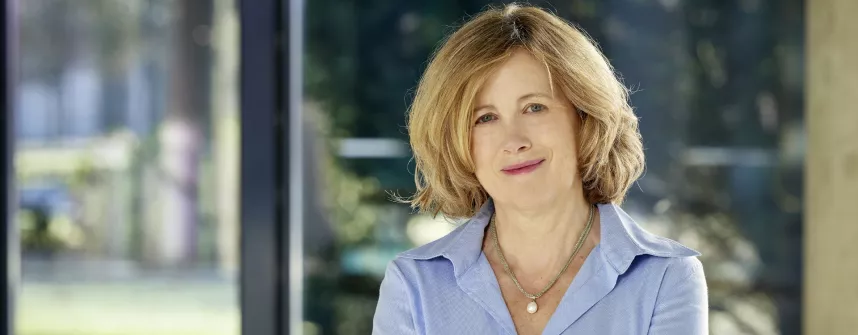Rethinking international politics in a green world: Constructor University professor publishes energy grid research
Renewable energy is often seen as a way to greater national autonomy through independence from imported energy sources. In an article published in Nature Energy on October 12th, 2023, Constructor University’s Professor Dr. Karen Smith Stegen examines the situation of countries sharing an energy grid – and suggests interconnectedness may both improve energy security and lead to more peaceful international relations.
Transitioning to renewable energy requires a great deal of international cooperation, according to Smith Stegen. Widespread use of renewable energy will require regional interconnectedness through electrical grids spanning multiple countries, which energy scholars presume will lead to the formation of cooperative and peaceful multi-state grid communities. “While isolated national grids might fit the energy-security-through-independence mindset of some policy makers and analysts, such systems are prone to power outages and are relatively more costly,” the professor for the B.A. program International Relations: Politics and History explains. Interconnected networks, therefore, are much more efficient and less costly than independent national grids.
Such interconnectedness would increase the likelihood for long term trade relations and peaceful cooperation, given the high exit costs for partners on a shared grid. This means the right choice of partners in energy grid relations will become of prime importance for international politics. The same goes for the management of such relationships, ensuring that partners are equally matched and sufficiently interconnected. In the conclusion to her article, Smith Stegen uses the invasion of Russia in Ukraine as an example: “One might ask why sharing a grid did not stop Russia from twice invading Ukraine. I would suggest that the density of interconnections was too low; Ukraine primarily imported Russian power.”
The article makes an argument for bringing together theories of International Relations and energy research. This connection, Smith Stegen argues, has previously been neglected as energy scholars focused on state competition for energy resources, while International Relations has failed to fully consider the importance of energy in world politics. Bringing the two fields together, Smith Stegen suggests, can only enrich conclusions drawn in both areas of research, and lead to a fuller understanding of geopolitics. The full article is available online through a subscription to Nature Energy.
Further information:
https://www.nature.com/articles/s41560-023-01363-z
Questions answered by:
Prof. Dr. Karen Smith Stegen | Professor of Political Science
ksmithstegen@constructor.university | Tel.: +49 421 200-4873
About Constructor University:
Founded in 2001, Constructor University is a top-ranked, English-language, private university, with a campus in Bremen, Germany. With its interdisciplinary approach, advanced digital learning tools and accredited programs, it equips students with fundamental knowledge, critical thinking and practical skills to build their professional career and address the world’s most pressing challenges.
The University emphasizes a synergetic and entrepreneurial spirit, offering program mentoring from top-tier professors and industry experts. Partner collaborations include the Constructor Institute in Schaffhausen, Switzerland, Carnegie Mellon, the National University of Singapore, the University of Geneva, and industry references such as JetBrains and ChemDiv.
Internationality and diversity lie at the heart of Constructor University, with more than 110 nations at its vibrant and close-knit campus community in Bremen. There, students enjoy active campus life, with access to clubs, professional networks and academic counselling, essential to their personal and academic growth.
Research-centric faculty projects at the University are funded by the German Research Foundation, the European Union's Framework Program for Research and Innovation, and globally leading companies.
The greater Constructor Knowledge ecosystem includes Constructor University in Bremen, Germany, and Constructor Institute in Schaffhausen, Switzerland. It is a provider of education services with education tools, worldwide traditional and online educational services, as well as advisory and strategic services to education customers in the fields of student recruitment, communications, and marketing support.
